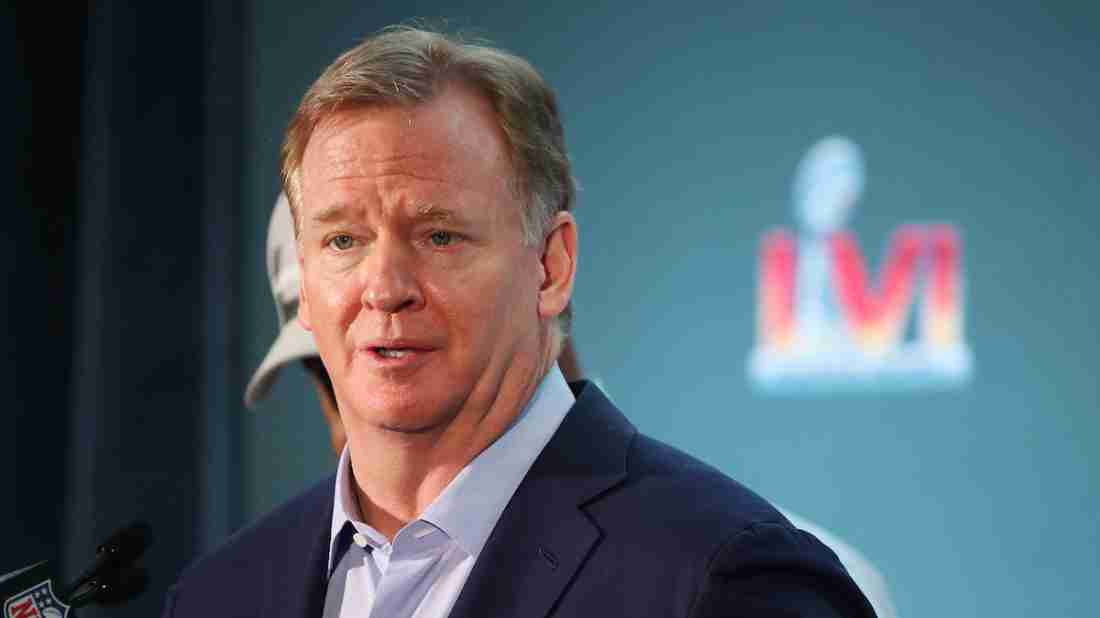A little more than a week after the Buffalo Bills lost to the Kansas City Chiefs in an AFC Championship game mired by controversy, NFL Commissioner Roger Goodell is throwing some cold water on conspiracy theories.
Goodell spoke to reporters on Monday as part of his Super Bowl press conference, addressing questions over officiating bias in last week’s game. The Chiefs beat the Bills 32-29 after a disputed turnover on downs, with Bills quarterback Josh Allen appearing to cross the line to gain but referees on the field marking him short.
A Bills fan later compiled a five-minute video showing several other questionable spots, with Bills ballcarriers appearing to pass first-down markers at other points in the game but being marked short. One of those plays came directly before Allen’s failed quarterback sneak, when tight end Dalton Kincaid appeared to cross the first-down marker.
Goodell finally spoke out on the controversy this week, calling it “ridiculous.”
NFL Commissioner Speaks Out
Goodell was asked on Monday about fans who believe the Chiefs have gotten beneficial calls, which was an issue throughout the season even before their win over the Bills in the AFC title game. Goodell called it a “ridiculous theory,” though added that he understands it comes from the passion of fans.
“A lot of those theories are things that happen on social media and they get a new life,” Goodell said, via Pro Football Talk.
Goodell pointed out that the Chiefs had 11 games decided by one score this season, saying that speaks well to the competitiveness of the league and not any kind of intentional bias.
Changes on the Way?
Though Goodell pushed aside any theories of intentional bias to favor the Chiefs, the league does appear willing to address one of the major concerns of Bills fans. ESPN’s Adam Schefter reported that the league is looking into using existing technology that uses a chip implanted in the football to determine spots.
The league already uses these chips to determine its NFL Next Gen Stats — showing how far a ball traveled or how fast a ballcarrier ran — and could start using them to help determine spotting on the field, Schefter said.
“They’ve experimented with this before. I would imagine, if they have the technology, they’re going to move forward in a direction where they can lean on it,” Schefter said, via On3. “They’re looking for any way to improve these kinds of things and the chain gang is something that was operating, seemingly, a hundred years ago.”
But Schefter added that no technology is perfect, and there can still be mistakes even with the use of a chip.
“If there was a chip in a football that can give you better reading then that would be great but I still think there are issues with that that the league is trying to get through. There’s no sure-fire solution,” Schefter said. “Even if there were a chip in a football, it doesn’t ensure that that football would’ve been properly marked, whether it was or wasn’t a first down in the AFC Championship Game.”

Leave a Reply